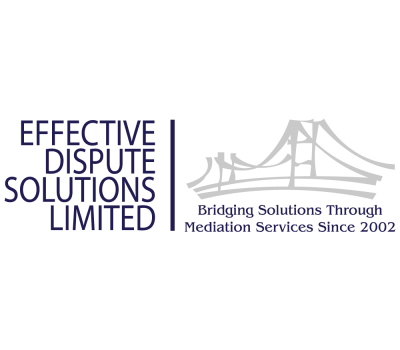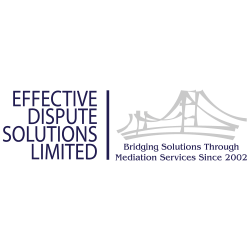Alternative Dispute
Resolution
- August 08, 2013
Alternative Dispute Resolution (ADR) is the umbrella name given to a number of practices which are all alternatives to resolving disputes without pursuing litigation (going through Court procedures).
The main types of ADR services are mediation (which sub divides into civil, commercial, workplace, family and community mediation depending upon the type of dispute that needs to be resolved), arbitration, adjudication, conciliation, early neutral evaluation, med arb and expert determination.
The nature of your dispute and the type of outcome you wish to achieve will determine which type of dispute resolution service you require, although a number of these processes are similar, they are governed by very different procedures and protocols. In this article we shall focus on the differences between mediation and arbitration.
Mediation involves an independent mediator who will provide assistance to the disputing parties in order to reach a mutually decided solution. It is important to make note of the fact that the terms are decided by the conflicting parties rather than a third party. This means that they are themselves responsible for the outcome and the mediator is present as a guide who will highlight important points in a proposed agreement. The objective of this is to help both parties to reach a compromise they are both satisfied with.
This is known as facilitative mediation; however evaluative mediation is where the mediator actually departs with their own evaluation of the strengths and weaknesses of their case, taking into consideration the litigation risk.
Arbitration is very similar to litigation and court action; however it is a faster process. An arbitrator, unlike a mediator, will preside over a case and will declare themselves in favour of one of the parties and will make a binding decision known as an award to which the parties have to abide by. Arbitrations can be conducted by one arbitrator or a panel, usually consisting of three members, and they can be conducted on a documents only basis, or in person and or a combination of both.
Therefore, if you want to stay in control and want to formulate your own outcome, the dispute resolution procedure to use would be mediation, whereby if you are not happy with any of the outcomes you and the other party come up with; there is no requirement to agree to them. This means you can negotiate terms rather than having to conform to conditions that have been decided by a third party.
However, if you would like a decision to be reached for you, then the alternative dispute resolution process you should use would be arbitration. This does run a considerable risk compared to mediation, since the final decision of the arbitrator will be set in stone, regardless of whether it benefits you or not. Whichever decision is made, you will be bound by it and will be required to abide by it.
Alternative Dispute Resolution Video
Our Expert Mediators, Click On Their Name To View Their Whole CV
2002 CEDR, Academy of Experts, ADR Group Accredited Mediator. 20+years of experience. 1000+ mediation’s, 90% success rate. Mediated every type of commercial, workplace, boundary & family dispute. CIArb mediation assessor & trainer since 2007. ADR Group, Head of Mediation Training 2018 – 2020. English & Punjabi speaker.
Harvinder Singh BhurjiLLB (Hons), QDR(M), MCIArb, MCMI, CTLLSDirector, International Commercial & Workplace Mediator & Trainer

1998 CEDR & ADR Group Accredited Mediator. 24 years experience, CIArb & RICS mediation trainer & assessor. Coach since 1987. Specialisms racial discrimination, unfair & constructive dismissal, bullying. Property, family businesses, construction, professional negligence. Director, partnerships, business, joint venture, debt, employment.
Jane WalmsleyBA, LLB, LLM, MCIArb, UKCP, MBACPPsychotherapist, Coach, Commercial &
Workplace Mediator, Barrister (non-practicing)

2004 ADR Group Accredited Mediator. 18 years mediation experience. CIArb Commercial Mediation Assessor. Solicitor & Consultant at Freeths 45+ years. Specialisms, dispute resolution, professional negligence, clinical negligence, product liability, personal injury, defamation & sports law.
Paul BalenLLB (Hons), Solicitor & Consultant at Freeths LLP, Director of Trust Mediation, Commercial Mediator

Dentist, CIArb & ADR Group Accredited Mediator, 17 years mediation experience, has been involved in over 100 civil & commercial mediations.
Dr. Michael ButterworthBDS, DGDP(UK), MFDS (RCS Eng), LLM, MCIArbDentist & Commercial & Family Mediator

2005 ADR Chambers Accredited Mediator. 16 years mediation experience. Chartered Accountant & Insurance Practitioner. Expert witness. Specialisms, insurance, liquidations, professional negligence, construction & boundaries.
David S BlackBSc (Hons) CA FCII FCILA ACIArb MEWICommercial Mediator & Accountant

2017 CEDR Accredited, 5 years mediation experience. Specialisms, commercial, company, contract, property, probate, IP & professional negligence.
Tim BennettPartner & Head of Dispute Resolutionat Bray & Bray Solicitors, 2007 - 2020.
CEDR Accredited Commercial Mediator

2005 CEDR Accredited Mediator, 16 years mediation experience. Proprietor of Beaumonde Law Practice, Solicitor & employment law specialist. Specialisms company, unfair dismissal, discrimination & compromise agreements. English & Punjabi speaker.
Sundeep Singh BhatiaEmployment Solicitor & Commercial Mediator 
2011 CIArb Accredited Mediator. 11 Years Mediation Experience. 400+ mediations.
CIArb Mediation Assessor. Specialisms, construction, property, commercial, boundaries, probate & professional negligence.
Bruce BourneMRICS, MCIArb, Chartered Surveyor, Commercial Mediator 
2009 RICS Accredited Mediator. 13 years mediation experience. Fellow of the Royal Institution of Chartered Surveyors.
Expert Witness, Determination. Specialisms construction, dilapidations, property & boundary.
Richard CavadinoChartered Quantity Surveyor & Commercial Mediator 
2010 CIArb Accredited Mediator. 12 years mediation experience. Specialisms, construction, engineering, contract, employment, partnership, shareholder & professional negligence disputes.
Martin CollingwoodSolicitor, Commercial Mediator,Arbitrator, Adjudicator, Med – Arb specialist

2004 CEDR & ADR Group Accredited Mediator. 18 years mediation experience. Barrister,
conducted 110+ mediations. Specialisms, boundary, landlord & tenant, employment, contractual disputes.
David DalyBarrister & Commercial Mediator 
1996 CIArb Accredited mediator. 19 years mediation experience. Qualified as a solicitor in 1962. Specialisms. all forms of building and civil engineering projects in the UK & overseas.
Roderick O'DriscollFCIArb, MBEng, Chartered Arbitrator, Accredited Mediator,Notary Public, Qualified Solicitor of the Supreme Court

1998 Academy of Experts Accredited Mediator. Qualified Dispute Resolver. 24 years mediation experience. CIArb commercial mediation course tutor & assessor. Issued well over 400 awards, decisions in civil & commercial disputes. Specialisms all commercial matters.
Ike EhiribeLLB (Hons) lagos, B.L, FCIArb, FSIArb, QDR, Barrister, Chartered Arbitrator, Adjudicator, Visiting Professor & Commercial Mediator

2003 CEDR Accredited Mediator. 19 years mediation experience. Manchester University lecturer, visiting lecturer & professor at several overseas universities. CIArb commercial mediation course tutor & assessor. Specialisms construction & engineering.
Dr. Peter FennBSc PhD FRICS FCIArb, Academic, Quantity Surveyor,Adjudicator, Arbitrator & Commercial Mediator

1996 CEDR Accredited Mediator. 26 years mediation experience. CIArb commercial mediation course tutor & assessor. Specialisms, construction, contracts, corporate sale, landlord & tenant, employment, personal injury & professional negligence.
Grant GoodladBarrister & Commercial Mediator 
2002 CEDR Accredited Mediator. 20 years mediation experience. Consensio workplace mediation course trainer. Specialisms, business, charities, contract, education, workplace, landlord & tenant, media, partnership, public sector, wills & probate.
Carolyn GrahamCommercial & Workplace Mediator 
ADR Group Accredited Mediator. 16 years mediation experience. 19 years as a civil litigator. Specialisms, personal injury, clinical & professional negligence, partnership, employment, landlord & tenant, commercial contract, boundary & probate disputes.
Phil HeskethSolicitor till 2008, Commercial Mediator 
1997 ADR Group Accredited Mediator. 25 years mediation experience. Head of insurance litigation department, specialising in personal injury & insurance litigation. Specialisms, personal injury, professional negligence, partnership, landlord & tenant.
Paul Hughes Solicitor & Commercial Mediator 
2003 ADR Chambers Accredited Mediator. 19 years mediation experience. Specialisms, contract, debt recovery, consumer, property, repossessions, & personal injury.
Maz Adam IqbalLLB (Hons), PGDip, MCIArb, CeMap,Barrister, Mortgage Advisor & Commercial Mediator

2007 ADR Group Accredited Mediator.15 years mediation experience. Specialisms, property, insurance, construction, professional negligence, boundaries, landlord & tenant & engineering.
Russell JonesSolicitor & Commercial Mediator 
2008 Accredited Mediator. 14 years mediation experience. Specialisms, commercial, company, contract, employment, insolvency & personal injury law.
Joe Al KhayatBarrister & Commercial Mediator 
2003 CEDR Accredited Mediator. 2004 ADR Group Accredited Mediator. 19 years mediation experience. Various directorships. Specialisms, building, construction, family business, partnership, commercial contracts, landlord & tenant & professional negligence.
Robin LeeBSc Mech Engineering, Commercial Mediator 
1999 CEDR Accredited Mediator. 90% success rate. 23 years mediation experience. Specialisms, contract, employment, boundary, building & construction.
Edward LegardBarrister, Employment Judge & Commercial Mediator 
2007 ADR Group Accredited Mediator. 15 years mediation experience. Specialisms, construction, property, commercial landlord & tenant, boundary, shared ownership, occupation & Inheritance Act disputes.
Michael McCourtLLB MSc FCIArb, Deputy DistrictJudge, Commercial & Family Mediator

2001 ADR Group Accredited Mediator. 21 years mediation experience. Specialisms, building, construction, civil engineering, professional negligence, boundary & contracts.
Paul NewmanBarrister, Adjudicator & Commercial Mediator 
2002 ADR Group Accredited Mediator. 20 years mediation experience. Qualified as a Solicitor in 1982. Family Mediator (MIAMs) trained also. Specialisms, family, probate, contract, debt recovery, & workplace disputes.
Frances PlaceCommercial & Family Mediator 
1997 ADR Group Accredited Mediator. 25 years mediation experience. Solicitor since 1991, for many years having obtained a Ist Class Honours Law Degree from Liverpool University. Specialisms, commercial, company, contract, employment, insolvency & personal injury law.
John RocheLLB (Hons) Solcitor & Commercial Mediator 
2007 ADR Group Accredited Mediator. 15 years mediation experience. Family & workplace mediation trained. Specialisms, probate, landlord / tenant, boundary, partnership, building, contract, insurance, professional negligence, family & workplace.
Julian RendallLLM, MCIArb, FMCA, MIAM's PPCSupervisor, Commercial, Workplace & Family Mediator

2002 CEDR Accredited Mediator. 20 years mediation experience. Specialisms, business, company, contract, debt recovery, director & partnerships.
Jeffrey C RosenthalBSc (Econ) FCCA FCIArb MAE, Accountant,Arbitrator, Expert Witness & Commercial Mediator

2008 ADR Group Accredited Mediator. 14 years mediation experience. Was a solicitor for 9 years, before being called to the Bar. Specialisms, litigation, trusts of land, property, landlord tenant & unlawful eviction.
Tom RussellBarrister & Commercial Mediator 
2008 ADR Chambers Accredited Mediator. 14 years mediation experience. Director at Davisons Solicitors & Head of the Dispute Resolution Team. Specialisms, construction, probate, family, employment, contract & professional negligence.
Umran SadiqSolicitor & Commercial Mediator 
2007 CIArb Accredited Mediator. 15 years mediation experience. Senior Counsel, Arbitrator, Conciliator, Med Arb & Expert Determination specialist. Specialisms, building, construction, civil engineering, rail, marine, energy, site remediation, professional negligence, contract & partnerships.
Ken SalmonMCIArb, Consultant Solicitor & Commercial Mediator 
2005 CEDR Accredited Mediator. 17 years mediation experience. Family Mediator also.
Vice President of the Law Society of England & Wales. English, Punjabi & Urdu speaker. Specialisms, property, boundary, directors, probate & contract.
Lubna ShujaSolicitor, Commercial & Family Mediator 
2003 ADR Group Accredited Mediator. 19 years mediation experience. 70+ mediations.
Specialisms, workplace, insurance, professional negligence, contract, property & private equity.
Louisa TaylorSolicitor & Commercial Mediator 
2002 CEDR Accredited Mediator. 20 years mediation experience. CIArb commercial mediation assessor. Issued over 175 arbitration awards. Co-author of ‘The Arbitration Act 1996 – A Commentary’. Principal Lecturer, University of the West of England. Specialisms, property, commercial & construction.
Jonathan TecksMA, FCIArb, DiplCArb, Barrister,Arbitrator, Academic & Commercial Mediator

2004 CEDR Accredited Mediator. 18 years mediation experience. Specialisms, construction, property, commercial, IT, market/industry analysis & business cases.
Dr Paul WheatlyCommercial Mediator 
2003 ADR Chambers Accredited Mediator. 19 years experience. Family & workplace mediation trained. Specialisms, construction, engineering, PFI/Projects, professional negligence, neighbour, litigation, family & workplace.
Peter WebsterSolicitor, Commercial, Workplace & Family Mediator 
2019 Accredited Mediator. 3 Years Mediation Experience. Managing Partner Gotelee LLP. Employment Solicitor, specialisms, workplace,
employment & commercial litigation.
Andrew WestSolicitor, Commercial & Workplace Mediator 
Previous
Next
2002 CEDR, Academy of Experts, ADR Group Accredited Mediator. 20+years of experience. 1000+ mediation’s, 90% success rate. Mediated every type of commercial, workplace, boundary & family dispute. CIArb mediation assessor & trainer since 2007. ADR Group, Head of Mediation Training 2018 – 2020. English & Punjabi speaker.
Harvinder Singh BhurjiLLB (Hons), QDR(M), MCIArb, MCMI, CTLLSDirector, International Commercial & Workplace Mediator & Trainer

1998 CEDR & ADR Group Accredited Mediator. 24 years experience, CIArb & RICS mediation trainer & assessor. Coach since 1987. Specialisms racial discrimination, unfair & constructive dismissal, bullying. Property, family businesses, construction, professional negligence. Director, partnerships, business, joint venture, debt, employment.
Jane WalmsleyBA, LLB, LLM, MCIArb, UKCP, MBACPPsychotherapist, Coach, Commercial &
Workplace Mediator, Barrister (non-practicing)

2004 ADR Group Accredited Mediator. 18 years mediation experience. CIArb Commercial Mediation Assessor. Solicitor & Consultant at Freeths 45+ years. Specialisms, dispute resolution, professional negligence, clinical negligence, product liability, personal injury, defamation & sports law.
Paul BalenLLB (Hons), Solicitor & Consultant at Freeths LLP, Director of Trust Mediation, Commercial Mediator

2005 CEDR Accredited Mediator, 16 years mediation experience. Proprietor of Beaumonde Law Practice, Solicitor & employment law specialist. Specialisms company, unfair dismissal, discrimination & compromise agreements. English & Punjabi speaker.
Sundeep Singh BhatiaEmployment Solicitor & Commercial Mediator 
1996 CEDR Accredited Mediator. 26 years mediation experience. CIArb commercial mediation course tutor & assessor. Specialisms, construction, contracts, corporate sale, landlord & tenant, employment, personal injury & professional negligence.
Grant GoodladBarrister & Commercial Mediator 
2002 CEDR Accredited Mediator. 20 years mediation experience. Consensio workplace mediation course trainer. Specialisms, business, charities, contract, education, workplace, landlord & tenant, media, partnership, public sector, wills & probate.
Carolyn GrahamCommercial & Workplace Mediator 
ADR Group Accredited Mediator. 16 years mediation experience. 19 years as a civil litigator. Specialisms, personal injury, clinical & professional negligence, partnership, employment, landlord & tenant, commercial contract, boundary & probate disputes.
Phil HeskethSolicitor till 2008, Commercial Mediator 
1999 CEDR Accredited Mediator. 90% success rate. 23 years mediation experience. Specialisms, contract, employment, boundary, building & construction.
Edward LegardBarrister, Employment Judge & Commercial Mediator 
2002 ADR Group Accredited Mediator. 20 years mediation experience. Qualified as a Solicitor in 1982. Family Mediator (MIAMs) trained also. Specialisms, family, probate, contract, debt recovery, & workplace disputes.
Frances PlaceCommercial & Family Mediator 
2007 ADR Group Accredited Mediator. 15 years mediation experience. Family & workplace mediation trained. Specialisms, probate, landlord / tenant, boundary, partnership, building, contract, insurance, professional negligence, family & workplace.
Julian RendallLLM, MCIArb, FMCA, MIAM's PPCSupervisor, Commercial, Workplace & Family Mediator

2003 ADR Group Accredited Mediator. 19 years mediation experience. 70+ mediations.
Specialisms, workplace, insurance, professional negligence, contract, property & private equity.
Louisa TaylorSolicitor & Commercial Mediator 
2003 ADR Chambers Accredited Mediator. 19 years experience. Family & workplace mediation trained. Specialisms, construction, engineering, PFI/Projects, professional negligence, neighbour, litigation, family & workplace.
Peter WebsterSolicitor, Commercial, Workplace & Family Mediator 





